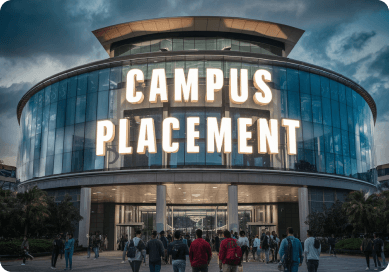Enter OTP



Paris, France

Paris, France

Cost Of Living

Undergraduate Fees International Students

Post Graduate Fees International Students

Pierre and Marie Curie University’s USP lay in its unparalleled focus on science and medicine, exceptional research productivity, and legacy of Nobel Prize-winning innovation. It was consistently ranked among the top institutions in Europe for natural sciences and was home to some of the world’s most influential scientists. The university offered cutting-edge programs in physics, chemistry, biology, and medical sciences, combined with strong partnerships with CNRS, INSERM, and various international research networks. Its interdisciplinary focus, state-of-the-art laboratories, and global collaborations positioned it as a hub for scientific excellence. Named after two of the most iconic figures in science, the university embodied the values of discovery and rigor. This prestigious reputation, combined with its integration into the Sorbonne University network, made UPMC a unique academic destination in Europe.
A pioneering French computer scientist, LeCun is one of the founding fathers of deep learning and convolutional neural n... View More
A pioneering French computer scientist, LeCun is one of the founding fathers of deep learning and convolutional neural networks. He is the Chief AI Scientist at Meta and a recipient of the 2018 Turing Award. View Less
Fields Medalist (2010), mathematician renowned for his work in kinetic theory and optimal transport. He has also served ... View More
Fields Medalist (2010), mathematician renowned for his work in kinetic theory and optimal transport. He has also served as a French Member of Parliament and is a prominent public science communicator. View Less
Brazilian-French mathematician and Fields Medal winner (2014), known for his contributions to dynamical systems and spec... View More
Brazilian-French mathematician and Fields Medal winner (2014), known for his contributions to dynamical systems and spectral theory. He earned his PhD from UPMC under the supervision of Jean-Christophe Yoccoz. View Less
A German-born French mathematician and Fields Medalist (2006), Werner made significant contributions to probability theo... View More
A German-born French mathematician and Fields Medalist (2006), Werner made significant contributions to probability theory, Brownian motion, and conformal field theory. View Less
A leading French statistician and professor, Rousseau has contributed significantly to Bayesian statistics and has held ... View More
A leading French statistician and professor, Rousseau has contributed significantly to Bayesian statistics and has held academic positions at UPMC, ENSAE, and Oxford. View Less
UPMC boasted an advanced academic infrastructure that blended modern technology with robust scientific facilities. The Jussieu Campus featured high-tech lecture halls, research laboratories, computer centers, clean rooms, observatories, and a large central library. Specialized institutes such as the Institut Henri Poincaré and the Oceanographic Institute supported unique educational and research experiences. The university had facilities for biomedical simulation, experimental biology, and advanced computing. Wireless internet, collaborative study zones, and audiovisual teaching tools were widely available. On-campus laboratories were equipped with cutting-edge instruments for molecular biology, nanoscience, and environmental physics. The infrastructure supported interdisciplinary collaboration and innovation. Sustainability and accessibility were also part of the campus design, with renovations improving energy efficiency and barrier-free access. This extensive and specialized infrastructure enabled UPMC to deliver world-class science and medical education.
Student life at UPMC was rich in intellectual, cultural, and social engagement. Beyond rigorous academics, students participated in a variety of clubs and societies ranging from science and robotics to theater, photography, and humanitarian work. The campus hosted exhibitions, debates, concerts, film screenings, and science festivals throughout the year. Cultural integration was supported by international student events, language exchanges, and city tours. The Student Union organized social events, welcome weeks, and student elections, fostering a sense of community. Campus cafés, courtyards, and common areas encouraged interaction and collaboration. The university's location in Paris provided direct access to theaters, museums, parks, and historical landmarks. Overall, student life at UPMC balanced academic intensity with vibrant extracurricular experiences, creating a dynamic and holistic university environment enriched by diversity and curiosity.


UPMC offered dedicated career services that supported students from the early stages of academic planning to job placement. The career center provided guidance on resume writing, interview preparation, and career exploration. Regular job and internship fairs, employer meetups, and alumni panels connected students with opportunities in research, healthcare, technology, and engineering. Workshops on entrepreneurship, networking, and labor laws were integrated into student services. Specific programs assisted PhD candidates in academic and industry transitions. Partnerships with CNRS, hospitals, startups, and global corporations ensured job pipelines for various disciplines. International students received help navigating French work permits and job search strategies. Online job boards and personalized advising made career planning accessible and flexible. The strong academic reputation of UPMC enhanced student employability, ensuring graduates were well-prepared for dynamic professional careers.
The below information is required while
completing the university application :
a) Common Application/Online Application
b) Application fee: 58 Euros
c) Official high school transcript
d) Proof of sufficient funding
e) Proof of accommodation
f) Passport copy
g) French language proficiency (B2 or higher)
Requirements may vary for each program. Please visit program page for specific requirements.
Know moreUPMC maintained strong relationships with leading scientific organizations, healthcare providers, and private-sector companies, facilitating robust campus recruitment opportunities for its graduates. Specialized career fairs and industry meetups were organized through university departments and research labs, connecting students with recruiters in biotechnology, pharmaceuticals, IT, and engineering. Students from programs in data science, biomedical engineering, and environmental sciences were frequently hired by multinational firms and public institutions. Many also entered elite French research institutions like CNRS, INRA, and INSERM or continued into academia. Career services provided resume preparation, interview training, and internship assistance. The university’s emphasis on research competencies made its graduates attractive to employers seeking technical and analytical skills. Additionally, UPMC’s reputation drew recruiters globally, giving students access to both domestic and international career pathways, particularly in R&D-intensive industries.



UPMC’s legacy includes remarkable scientific milestones and accolades. Its community boasts two Nobel Prizes in Physics, one in Medicine, and three Fields Medals, awarded to Wendelin Werner, Cédric Villani, and Artur Avila. It also garnered CNRS Gold Medals in 1996, 1998, and 2009. Professor Alexandra Durr received the prestigious Lamonica Prize in Neurology in 2018. The university maintained top positions in global university rankings for natural sciences and consistently ranked among the best in Europe. It made critical contributions to climate research, oceanography, and neuroscience. Many faculty members were elected to France’s prestigious scientific academies, and students regularly won national innovation and thesis awards. The university's integration into the Sorbonne University alliance further expanded its academic influence, cementing its status as a pillar of scientific excellence in France.


Former UPMC labs contributed to breakthroughs in AI (LIARA), medicine (Pitié-Salpêtrière), and oceanography (LOMIC).
Awarded for contributions to dynamical systems theory.
Won 22 European Research Council grants, highlighting research excellence.
Awarded for groundbreaking work in quantum physics (though officially at Collège de France, he collaborated with UPMC).
Wendelin Werner, a UPMC mathematics professor, received the Fields Medal for groundbreaking work in probability theory, including stochastic Loewner evolution and percolation theory.
UPMC was at the forefront of global research, housing more than 100 laboratories and collaborating extensively with CNRS and other top-tier institutions. Its research spanned theoretical and applied sciences, including quantum physics, genetics, oceanography, robotics, and nanotechnology. Innovation was embedded in academic programs, with students participating in real-world scientific inquiries through research projects and lab-based learning. The university contributed to numerous European Union research initiatives and held a high volume of scientific publications and patents annually. Notable research units included the Laboratoire Kastler Brossel and the Institut de Biologie Paris-Seine. UPMC promoted interdisciplinary collaboration through joint chairs and innovation hubs, leading to significant advancements in medicine, artificial intelligence, and climate science. This strong research ecosystem enabled the university to maintain a top-tier status and drive scientific progress in critical global fields.

Embark on your educational journey with confidence! Our team of admission experts is here to guide you through the process. Book a free session now to receive personalized advice, assistance with applications, and insights into your dream school. Whether you're applying to college, graduate school, or specialized programs, we're here to help you succeed.
